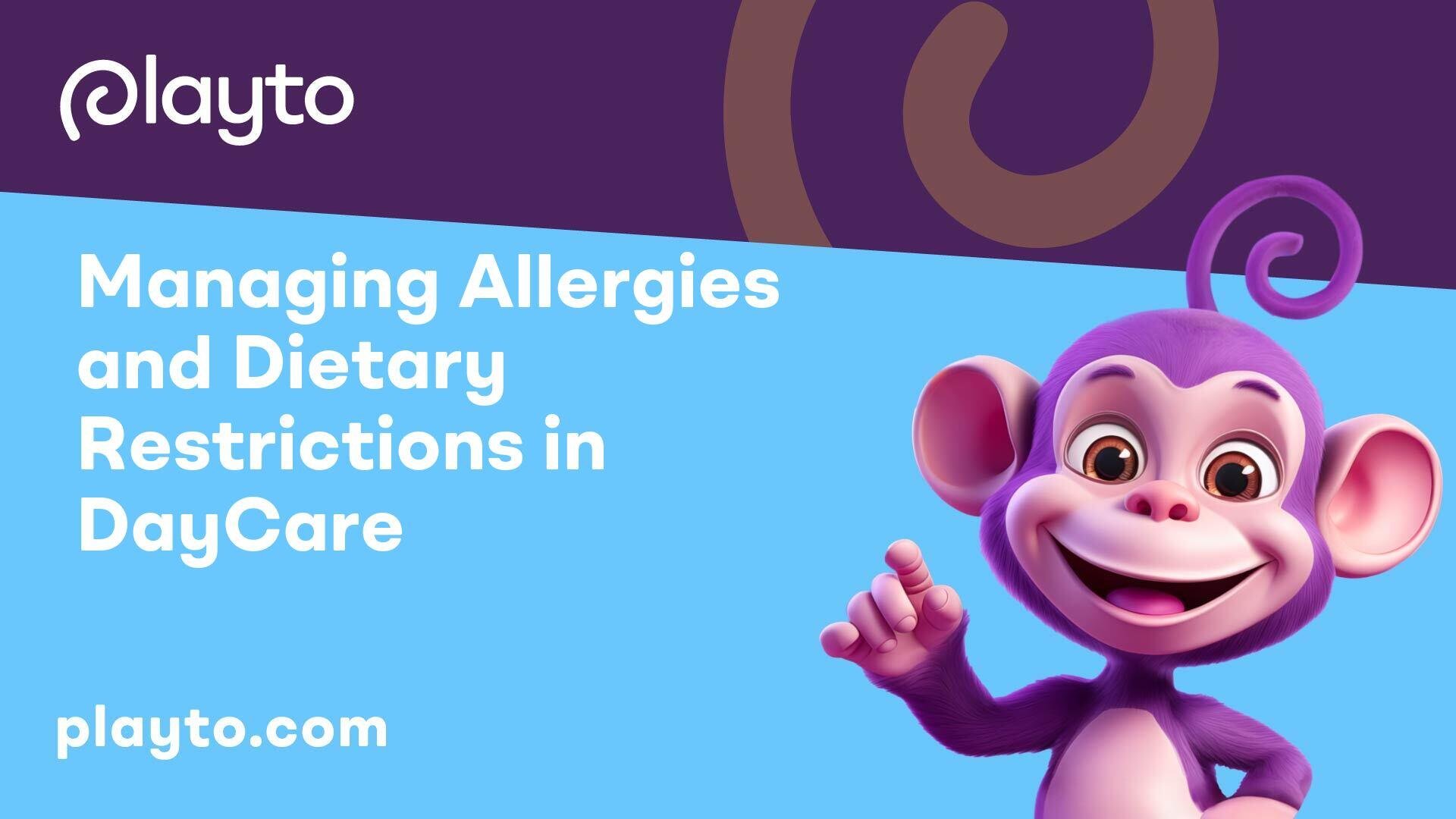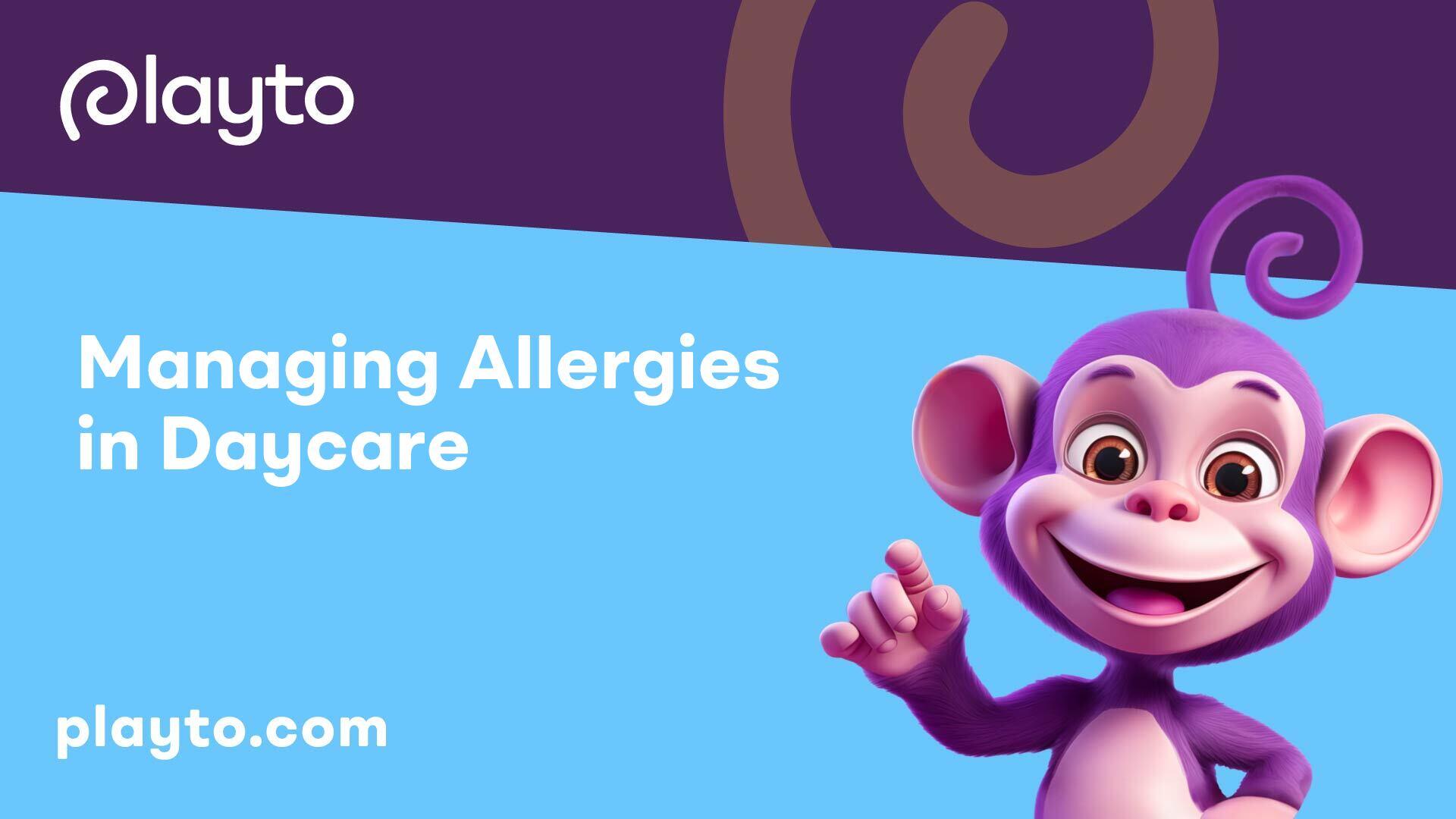
Managing Allergies in Daycare
Ensuring the safety and well-being of children with allergies and dietary restrictions in daycare settings is of paramount importance. Over 60 percent of food allergy reactions at school occur in preschools and child care facilities, highlighting the need for these environments to be safe and nurturing for children with food allergies.
Importance of Allergy Management
Proactive management of allergies in daycare plays a vital role in safeguarding the health of children. Early care and education programs must have robust plans in place to prevent allergic reactions and respond promptly to food allergy emergencies, including anaphylaxis. Quick recognition and treatment are crucial in preventing severe health issues or fatalities [2].
CDC Guidelines for Early-Care Settings
The Centers for Disease Control and Prevention (CDC) has developed voluntary guidelines to assist schools in managing children with food allergies, with specific guidelines tailored for early-care settings beginning on page 77. These guidelines are designed to provide a framework for creating safe and inclusive environments that cater to the needs of children with allergies and dietary restrictions.
By adhering to the guidelines set forth by the CDC, daycare facilities can implement best practices for allergy management, ensuring the well-being of all children under their care. These guidelines cover various aspects of allergy management, including prevention strategies, emergency response procedures, and the importance of staff training and awareness.
To access additional resources and support for managing allergies in daycare settings, organizations can turn to FARE (Food Allergy Research & Education). FARE offers a range of resources, including emergency care plans, cleaning methods, allergen avoidance tips, and educational materials tailored specifically for managing food allergies in early childhood settings.
By following established guidelines, accessing relevant resources, and fostering open communication with parents and staff, daycares can create safe and supportive environments that cater to the diverse needs of children with allergies and dietary restrictions. These efforts not only promote the health and safety of all children but also contribute to a nurturing and inclusive daycare experience.
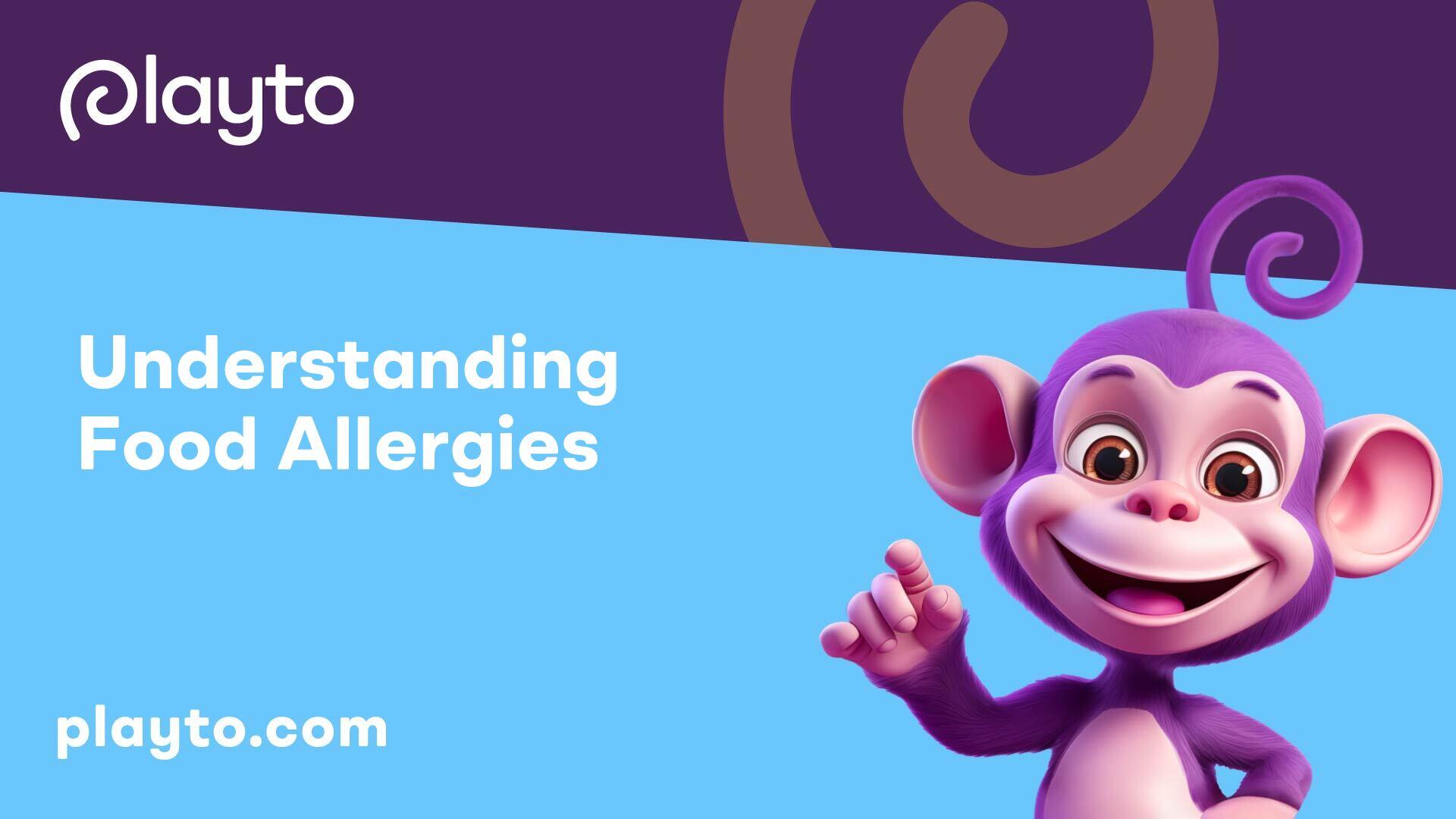
Understanding Food Allergies
In the context of daycare settings, understanding food allergies is paramount for maintaining a safe environment for all children. This section explores the common food allergens and the dangers of anaphylaxis associated with food allergies.
Common Food Allergens
According to the CDC, the most common foods that lead to serious allergic reactions in the U.S. are milk, eggs, fish, crustacean shellfish, wheat, soy, peanuts, and tree nuts. These foods are known to trigger severe allergic responses and must be carefully managed in daycare settings to prevent adverse reactions among children.
It is essential for daycare providers to be aware of the prevalence of these allergens and to implement safety measures for multi-age daycare classrooms to accommodate children with food allergies. By understanding the common triggers, daycare facilities can take proactive steps to prevent exposure and respond promptly in case of an allergic reaction.
Anaphylaxis and Its Dangers
Anaphylaxis is a sudden and severe allergic reaction that has the potential to be life-threatening. Not all allergic reactions progress to anaphylaxis; however, it is crucial to be prepared for this possibility, especially in a daycare setting. According to the CDC, a considerable percentage of children with food allergies in the United States have required treatment in the emergency department due to anaphylaxis.
In daycare settings, it is vital to establish emergency response procedures to address anaphylaxis promptly and effectively. Training staff on recognizing the symptoms of anaphylaxis and administering medication, such as epinephrine, is crucial for ensuring the safety of children with food allergies.
By educating staff members, parents, and children about the common food allergens and the potential dangers of anaphylaxis, daycare facilities can create a safe environment that accommodates the needs of all children, including those with food allergies. Through vigilance, communication, and preparedness, daycare providers can help prevent allergic reactions and respond swiftly in case of emergencies.
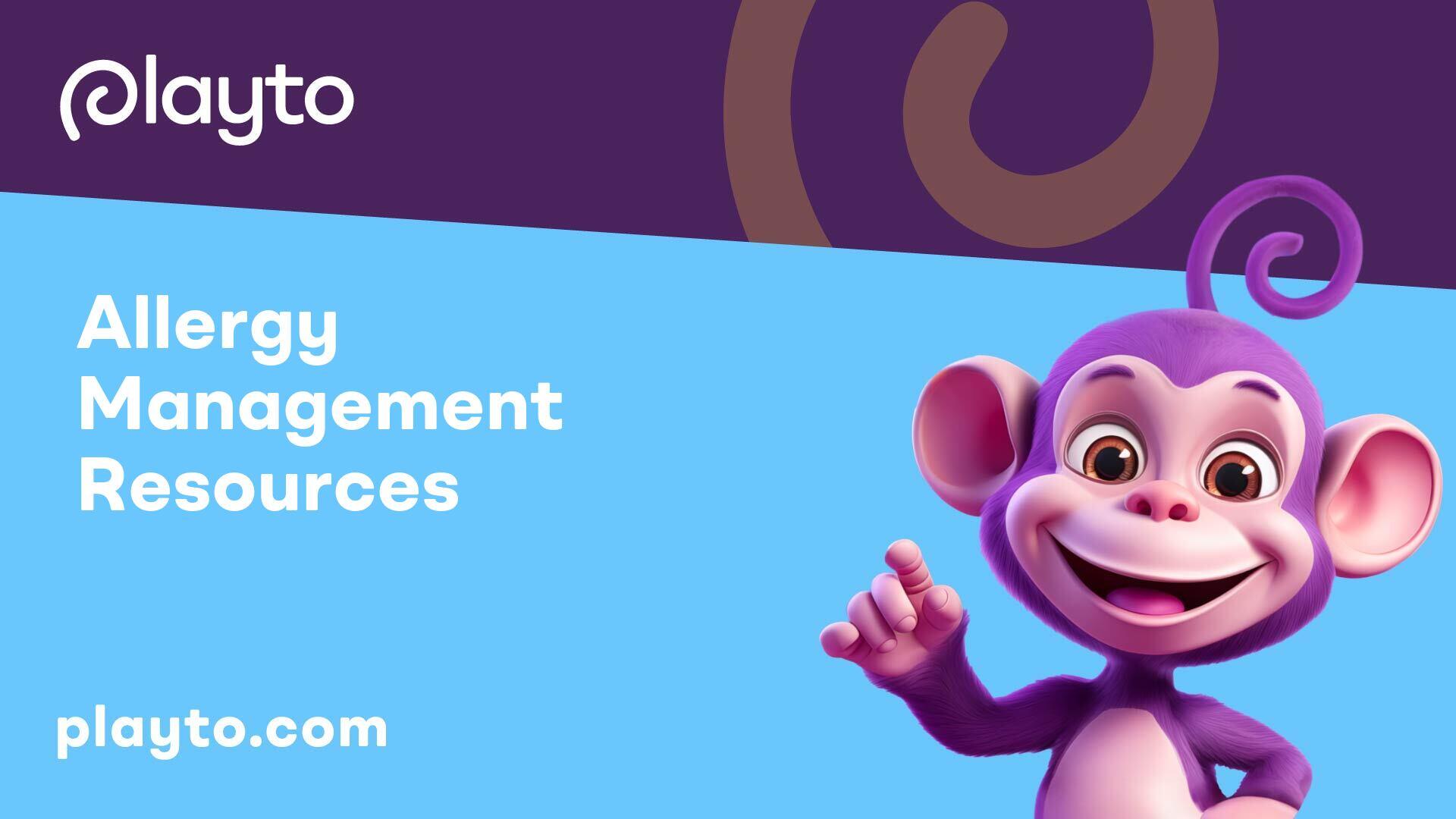
Allergy Management Resources
When it comes to managing allergies and dietary restrictions in daycare, having access to valuable resources is essential to ensure the safety and well-being of children with allergies. Two key resources that play a significant role in guiding daycare facilities in allergy management are FARE resources and the implementation of Elijah's Law.
FARE Resources
FARE (Food Allergy Research & Education) offers a plethora of resources specifically designed to assist daycare facilities in effectively managing food allergies in young children. These resources include emergency care plans, cleaning methods, tips for avoiding allergens, and educational materials tailored for early childhood settings.
In addition to fundamental resources like emergency care plans, FARE provides allergen-free cookbooks, back-to-school posters, food allergy guides, workshop videos access, and holiday recipe books. These resources are invaluable in helping individuals and families navigate and manage food allergies successfully in daycare settings.
By utilizing the comprehensive resources provided by FARE, daycare facilities can establish robust allergy management protocols, create safe environments, and educate staff and parents on the best practices for handling food allergies and dietary restrictions.
Elijah's Law Implementation
Elijah's Law plays a crucial role in ensuring that child care facilities have clear and concrete steps in place to effectively manage food allergies among children. This law mandates the development of emergency protocols, strategies for discussing food allergies with children, and plans for preventing exposure to food allergy triggers.
The implementation of Elijah's Law requires daycare facilities to have comprehensive food allergy management strategies in place. This includes detailed emergency protocols, effective communication methods with parents and caregivers regarding food allergies, and proactive measures to prevent exposure to allergens.
Several states have recognized the importance of Elijah's Law and have either adopted or introduced similar legislation to safeguard children with food allergies in daycare settings. By adhering to the guidelines set out by Elijah's Law, daycare facilities can create a safer environment for all children, including those with dietary restrictions and allergies.
By combining the resources offered by FARE with the protocols mandated by Elijah's Law, daycare facilities can establish robust allergy management practices that prioritize the safety and well-being of all children under their care. These resources serve as pillars of support in creating inclusive and secure environments that cater to children with allergies and dietary restrictions.
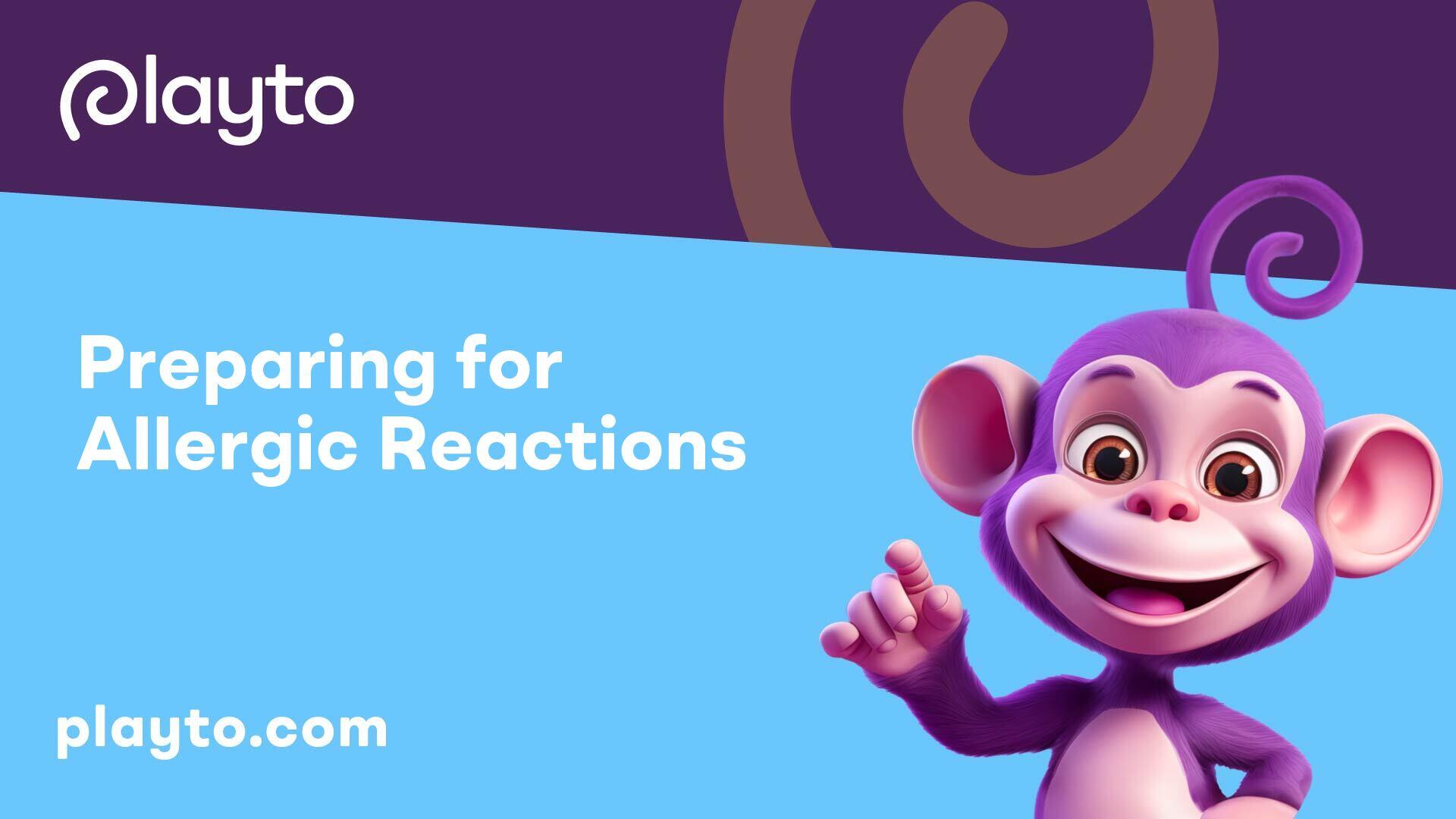
Preparing for Allergic Reactions
In a daycare setting, being well-prepared for allergic reactions is paramount to ensuring the safety and well-being of children with food allergies. Understanding the symptoms and severity of allergic reactions, as well as having clear emergency response procedures in place, is crucial for effective allergy management.
Symptoms and Severity
Allergic reactions to food can manifest in various ways, affecting different parts of the body. Symptoms may include hives, swelling, coughing, wheezing, and difficulty breathing. It's important to note that the symptoms and severity of allergic reactions can vary among individuals and may even differ for the same person over time.
While not all allergic reactions progress to anaphylaxis, a sudden and severe allergic reaction that can be life-threatening, it is essential to be aware that more than 40% of children with food allergies in the U.S. have received emergency treatment [2]. Anaphylaxis is characterized by symptoms such as difficulty breathing, tightness in the chest, and a drop in blood pressure. Therefore, recognizing the early signs of an allergic reaction and taking prompt action are crucial in a daycare setting.
Emergency Response Procedures
In the event of an allergic reaction, daycare staff must be prepared to respond swiftly and appropriately to ensure the child's safety. This includes following established emergency response procedures, which may involve administering epinephrine if necessary. Proper training and awareness among daycare staff are fundamental in preventing and managing allergic reactions effectively [4].
Training programs should cover essential aspects such as recognizing allergy symptoms, understanding the proper use of epinephrine auto-injectors, and familiarizing staff with the steps to take during an allergic emergency. By ensuring that staff are well-equipped to handle allergic reactions, daycare centers can provide a safe environment for all children, including those with food allergies.
Establishing clear communication channels with parents is also vital in managing allergic reactions effectively. Parents can provide important information about their child's allergies, triggers, and specific emergency protocols. By working collaboratively with parents and maintaining open lines of communication, daycare staff can enhance their ability to respond promptly and appropriately to allergic reactions, safeguarding the well-being of all children under their care.
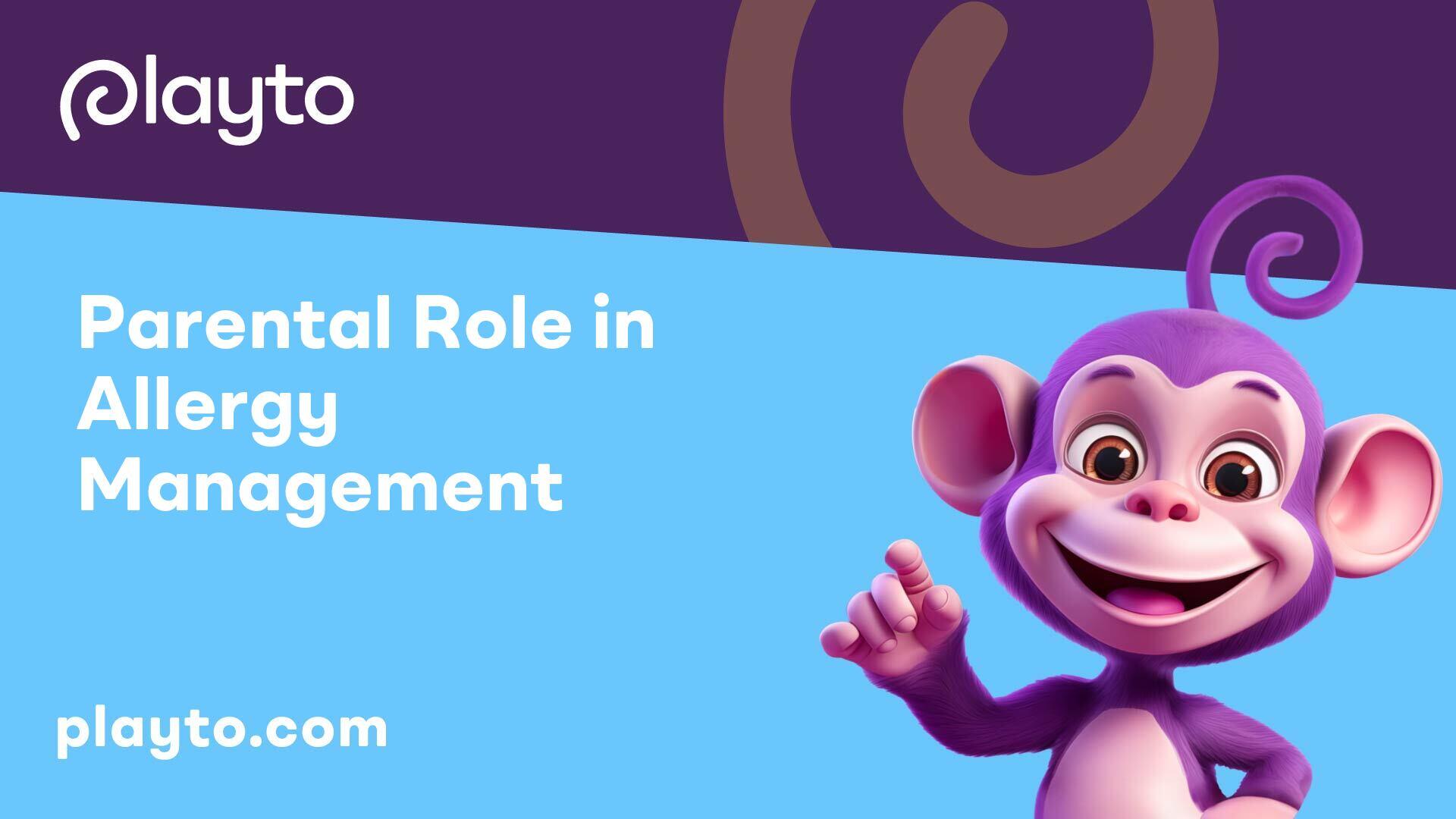
Parental Role in Allergy Management
When it comes to managing allergies and dietary restrictions in daycare, parents play a pivotal role in ensuring the safety and well-being of their children. Communication with the daycare staff and providing essential allergy information are key aspects of effective allergy management.
Communication with Daycare
Effective communication between parents and daycare staff is essential to create a safe environment for children with allergies. Parents should inform the daycare about the symptoms of an allergic reaction that their child may experience. These symptoms can range from hives, itching, swelling, difficulty breathing, to gastrointestinal issues. By sharing this information, daycare providers can be better prepared to recognize and respond to allergic reactions promptly.
It's crucial for parents to maintain open channels of communication with the daycare to ensure that any changes or updates regarding their child's allergies are communicated promptly. Regular discussions with the daycare staff can help address any concerns and ensure that all parties are well-informed about the child's specific needs.
Providing Allergy Information
Parents should provide the daycare with a detailed list of their child's food allergies, including any cross-contaminants that can trigger an allergic reaction. This information is vital for daycare providers to implement necessary precautions and avoid potential allergens in meals and snacks [5].
In addition to listing specific allergens, parents should also provide written emergency procedures for managing an allergic reaction. This should include guidelines on how to administer epinephrine if needed. By equipping the daycare staff with detailed instructions, parents can ensure that their child receives timely and appropriate care in the event of an allergic emergency.
As part of the parental role in allergy management, proactive communication and the provision of comprehensive allergy information are essential steps to safeguard children with allergies in daycare settings. By working closely with daycare providers and sharing crucial details about their child's allergies, parents can contribute to creating a safe and supportive environment where children with allergies can thrive.
Staff Training and Awareness
Ensuring proper training and awareness among daycare staff is paramount for effectively managing allergies and dietary restrictions in daycare. Staff members play a critical role in recognizing allergy symptoms and administering medication when necessary to safeguard children with allergies.
Recognizing Allergy Symptoms
Proper training programs are essential to educate daycare staff on recognizing common allergy symptoms. Symptoms can vary from mild reactions like skin rashes and itching to severe manifestations such as difficulty breathing and anaphylaxis. By being able to identify these symptoms early on, staff can act swiftly to prevent escalation and provide the necessary care.
Administering Medication
In daycare settings, staff must be well-versed in the administration of allergy medication, particularly epinephrine auto-injectors like EpiPen, in case of emergencies [5]. They should receive comprehensive training on how to use these devices correctly to manage severe allergic reactions effectively. Regular reviews of emergency response procedures are crucial to ensure that staff members remain competent and prepared to handle any allergic incident.
By equipping daycare staff with the knowledge and skills to recognize allergy symptoms and administer medication promptly, childcare centers can provide a safe and secure environment for children with allergies. Effective staff training and awareness programs are fundamental in preventing allergic reactions and responding promptly in case of emergencies.
Creating Safe Environments
Ensuring the safety of children with allergies in daycare settings involves proactive measures to create safe and secure environments. Two key strategies in this regard are establishing allergen-free zones and maintaining regular monitoring and communication practices.
Establishing Allergen-Free Zones
Childcare centers can designate specific areas as allergen-free zones to provide a safe space for children with severe allergies. These zones are crucial for minimizing the risk of accidental exposure to allergens and creating a secure environment for allergic children. Establishing allergen-free zones requires clear communication with staff, parents, and children to uphold strict allergen avoidance protocols.
In these zones, it's essential to implement strict policies regarding food, personal care products, and environmental triggers that could potentially cause allergic reactions. Regular cleaning and disinfection of these areas help eliminate allergens, providing a safe haven for allergic children within the daycare setting.
Regular Monitoring and Communication
Regular monitoring and communication play a pivotal role in maintaining the safety and well-being of children with allergies in daycare. Proper communication channels need to be established between daycare staff, parents, and healthcare providers to ensure that relevant allergy information is accurately shared and understood.
Monitoring allergies in daycare settings involves continuous vigilance to prevent allergic reactions. Staff members should be trained to recognize early signs of allergic reactions and respond promptly to any incidents. Through regular check-ins and updates, daycare providers can stay informed about any changes in a child's allergy status or management plan.
Frequent communication with parents is essential to address any concerns, share updates on allergy management protocols, and seek guidance on managing specific allergies. By fostering open and transparent communication channels, daycare centers can create a collaborative environment where everyone is actively involved in ensuring the safety of children with allergies.
By establishing allergen-free zones and implementing robust monitoring and communication practices, daycare centers can create safe environments that prioritize the well-being of children with allergies. These proactive measures are essential for promoting a supportive and inclusive atmosphere where all children can thrive without compromising their health and safety.
National Efforts for Allergy Protection
When it comes to ensuring the safety of children with food allergies in daycare settings, national efforts play a pivotal role in establishing guidelines and regulations. Two significant aspects of these efforts are the impact of Elijah's Law and the implementation of state-level guidelines across the country.
Elijah's Law Impact
Elijah's Law, spearheaded by the Asthma and Allergy Foundation of America, focuses on enhancing food allergy management in child care facilities. This law mandates concrete steps for daycare centers to manage food allergies effectively. Key components of Elijah's Law include developing emergency protocols, strategies for discussing food allergies with children, and plans for preventing exposure to food allergy triggers.
In 2022, New York was the first state to enact Elijah's Law, followed by Illinois. The law has also been introduced in California, Pennsylvania, and Virginia as of February 2022. This legislation sets a precedent for other states to follow, emphasizing the importance of standardized procedures to protect children with food allergies in daycare settings.
State-Level Guidelines
A comprehensive report titled "Child Care Policies for Food Allergy: Elijah’s Law Report for U.S. States and Territories," compiled by the Asthma and Allergy Foundation of America, offers a state-by-state review of key policy standards for child care settings related to food allergies. This comparative analysis helps identify areas where additional protective measures are necessary to safeguard children with food allergies.
The ultimate goal of this report on Elijah's Law is to advocate for the widespread adoption of this legislation nationwide. By shedding light on state-level gaps in child care protections and advocating for uniform standards inspired by Elijah's Law, the report aims to foster better understanding and implementation of food allergy management protocols in daycare facilities.
To bolster the safety and well-being of children with food allergies in daycare settings, the report outlines nine key standards developed in coordination with the Elijah-Alavi Foundation (EAF). These standards are intended to guide advocacy efforts towards enhancing protections for children with food allergies across all states and U.S. territories, ensuring a consistent and high level of care and protection.
Through Elijah's Law and the development of state-level guidelines, the collective efforts of national organizations and lawmakers are paving the way for improved food allergy management in daycare facilities, creating safer environments for all children, including those with dietary restrictions and allergies.
References
[1]: https://www.foodallergy.org/resources/food-allergies-early-childhood
[3]: https://aafa.org/advocacy/key-issues/food-allergies-advocacy/food-allergies-in-child-care-settings/
[4]: https://www.playto.com/blog/daycare-strategies-for-handling-allergies
